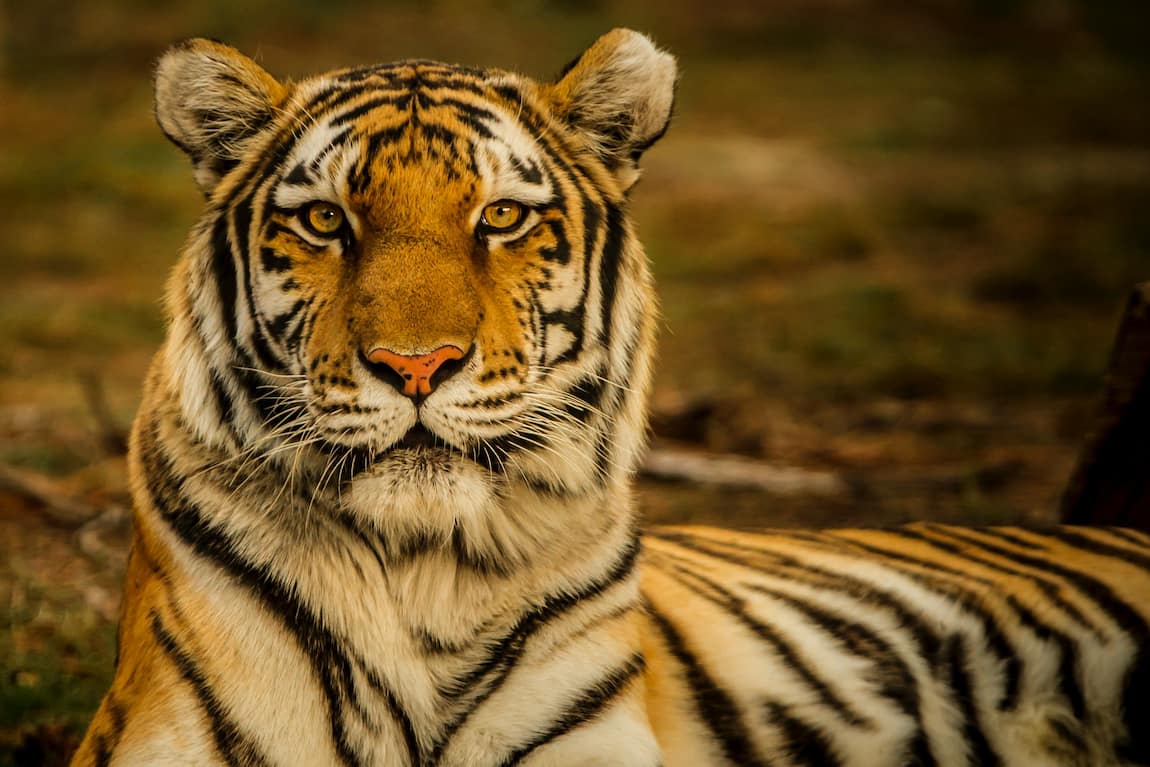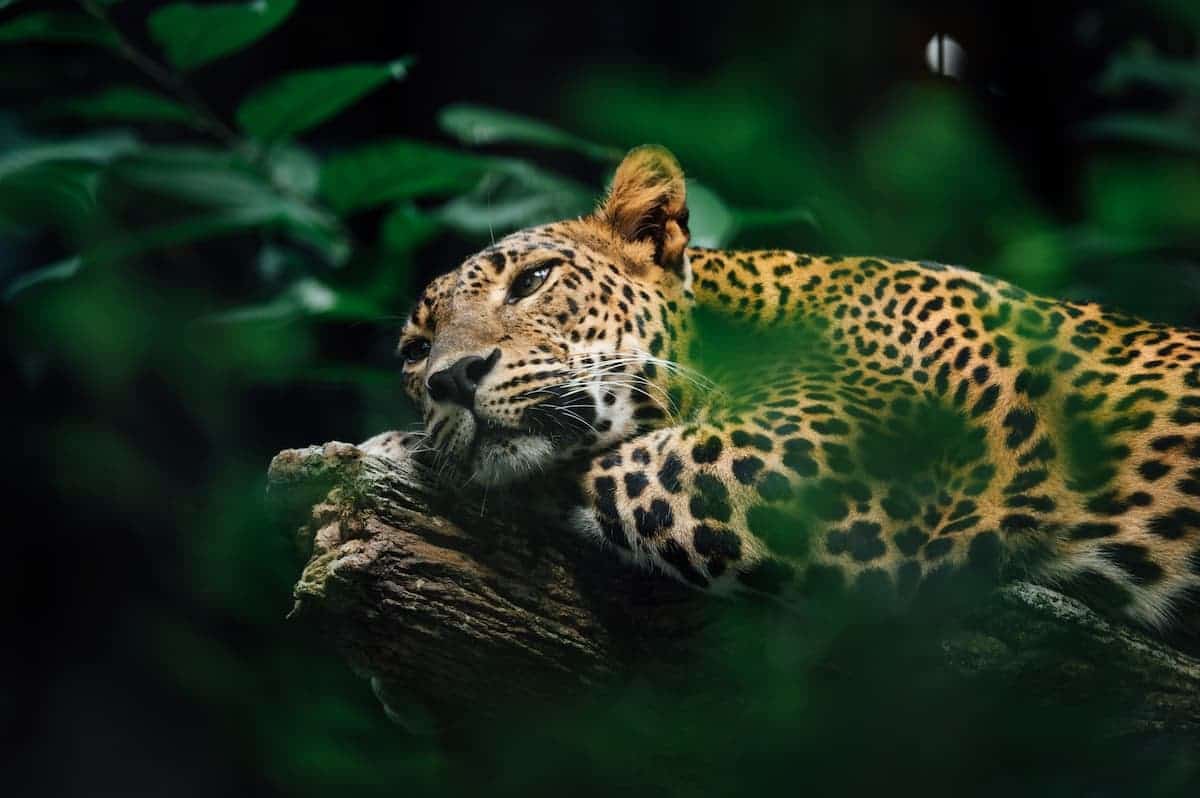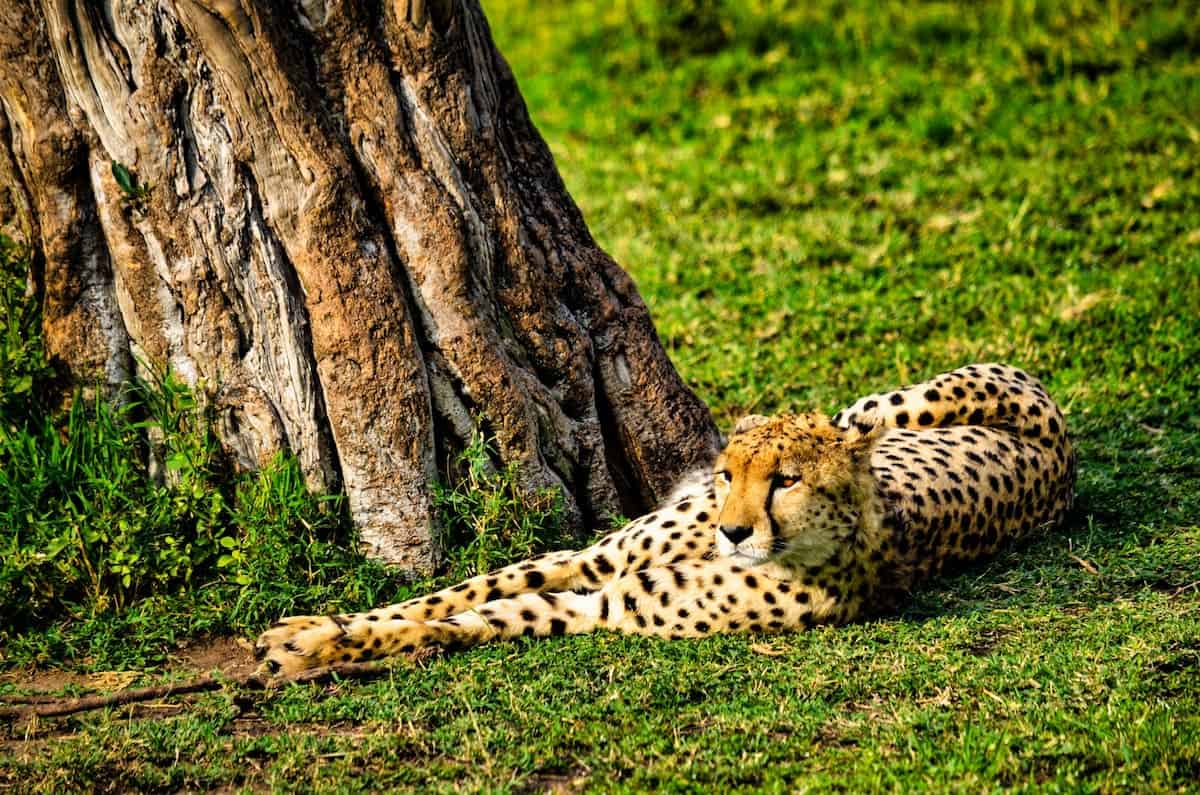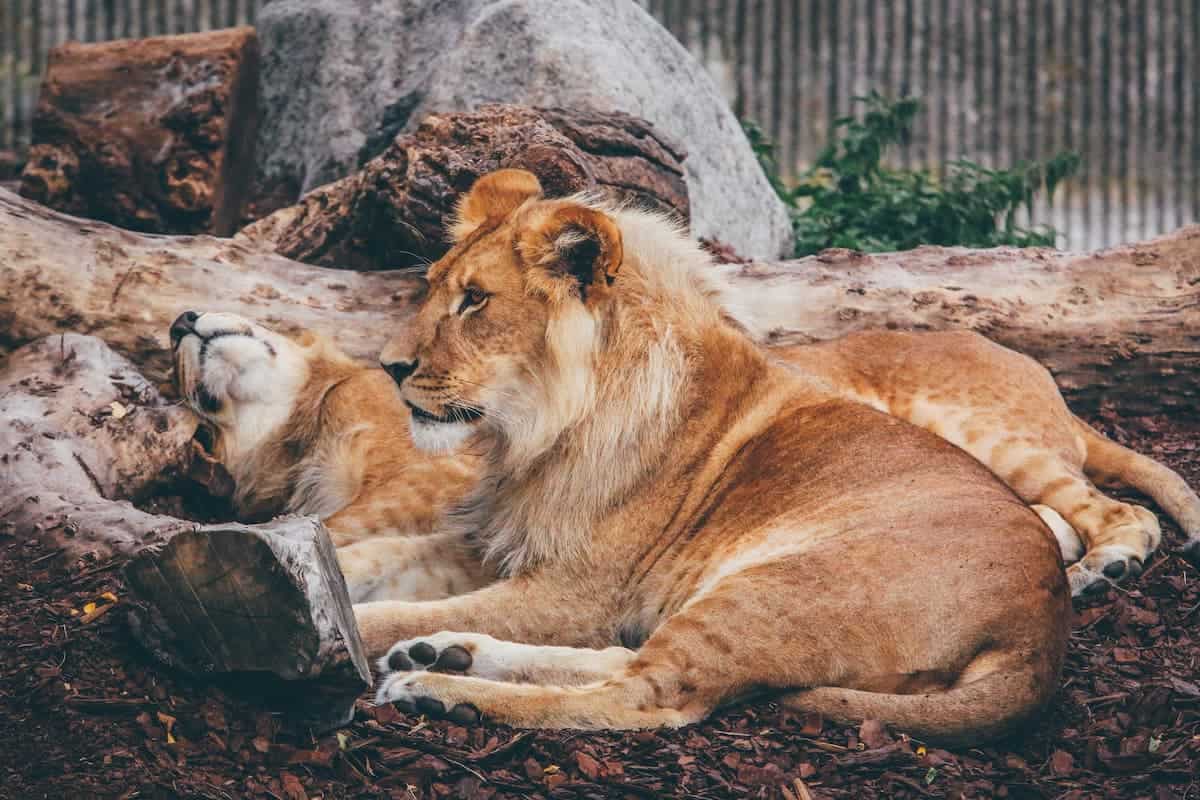Tigers are some of the most dangerous and magnificent cats in all of the wild. It’s no wonder they’re celebrated in various cultures all over the world. Although they may seem fierce and threatening to us, they’re actually pretty docile and lazy most of the time, as long as they’re left alone.
Actually, tigers sleep for the majority of their lives! If they did not get enough cat-naps throughout the day, they would not be able to effectively hunt, so getting enough sleep is critical to their well-being—as it is to just about everyone.
In case you didn’t know, on average, tigers sleep for around 15 to 16 hours per day. There are a number of reasons why though. Keep reading to find out more!
How Long Do Tigers Sleep?
Tigers are known to be the largest cat in the world, and also one of the most brutal cats in the wild, but they sleep a lot. Actually, most large cats sleep a lot—but the tiger is a contender for the title of sleepiest.
As you now know, tigers sleep for at least 15 to 16 hours per day, and that amount can change depending on a number of factors. They might sleep for longer if they’ve had a large meal, and will sleep less if they need to spend more time hunting. It’s not unusual for a tiger to sleep upwards of 20 hours in a day. Hunger and satiation tend to be significant driving forces behind the sleep habits of tigers, as you’ll soon discover.
If you’ve ever been on a safari, the chances are, you didn’t see a tiger out and about. Tourists often pay boat-loads of money for guides to take them into tiger territory to catch a glimpse of these magnificent beasts, but it’s still rare to find them. Why? Because they’re almost always out of sight sleeping.
When Do Tigers Sleep?
Now that you know how much tigers sleep, you might be wondering when they usually catch all of those Z’s.
No matter what region of the world you find them in, tigers are most commonly nocturnal animals. That means that they’re most active during the dark hours of the night. This is largely due to the availability of prey. Tigers have excellent eyesight and stalking capabilities (especially at night), so they use this to their advantage by hunting their prey when they’re most vulnerable.
This night-stalking comes at a cost though. If you’ve ever stayed up all night, you know that you’re going to need to sleep the next day, and the same goes for tigers.
These giant cats burn incredible amounts of energy when hunting and attacking their prey, and this exertion needs to be balanced with ample rest. Otherwise, they wouldn’t be able to properly function again the following night.
With all of that said, it’s common for tigers to sleep during the hot hours of the day, as it helps them to conserve their energy for the next hunt.
Where Do Tigers Sleep?
We mentioned earlier that it’s uncommon to find tigers out and about during the daylight hours, as they’re nocturnal animals and sleep during the day. But where do they sleep? Finding the perfect sleeping spot as a tiger isn’t as challenging as you might think. To learn more about this check out our Where Do Tigers Sleep Article Here
How Do Tigers Sleep?
If you’ve ever seen a house cat sleeping, you can probably imagine how a wild tiger sleeps. They might look cute, but they’re still dangerous. Tigers will typically sleep on their sides, curled up on their stomachs, or even laying on their backs with their legs in the air. They lay in whatever position allows them to get the ample rest that they need for hunting.
How Long Do Tiger Cubs Sleep?
Although tiger cubs do not spend the same amount of energy as adults, they still typically need more sleep—equaling to upwards of 20 hours in a day. The amount of sleep a tiger cub gets will depend heavily on its environment as well, and it will fluctuate from one day to the next and balance out as it matures.
Why Do Tigers Sleep So Much?
You know now that tigers are the largest species of cat in the world, and their large muscular bodies burn lots of calories that need to be replenished with food and sleep. In the wild, tigers must hunt for their food. Locating, stalking, subduing, and moving their meal takes a lot of energy.
Sometimes the tiger will have to chase their prey a great distance through the jungle, which also requires a great deal of stamina. After a long night of hunting, they have to sleep it off. If they don’t get enough sleep, they risk missing their next catch and suffering from food deprivation.
Do Tigers Dream?
Whether nocturnal or diurnal, all mammals share similar sleep patterns. That means that both tigers and humans experience similar stages of sleep. This includes SWS (slow-wave sleep) and REM (rapid eye movement). SWS is the deepest stage of sleep, in which the tiger’s body receives the most rest and recuperation.
REM sleep is the stage associated with dreaming in humans—and tigers experience this too. If you’ve ever seen your pet dog or cat twitching or, “running,” while they’re asleep, you’ve witnessed what may be an animal dream. Tigers experience this same level of sleep, as long as their sleep environment remains undisturbed.
Conclusion
In this article, you’ve discovered that tigers sleep anywhere between 15 to 20 hours per day, depending on their age and level of activity at night. Despite being nocturnal, their sleep cycles closely resemble those of humans’ and are crucial to their health and survival.





